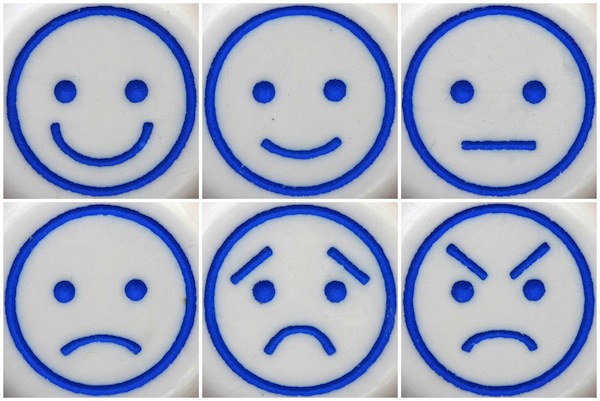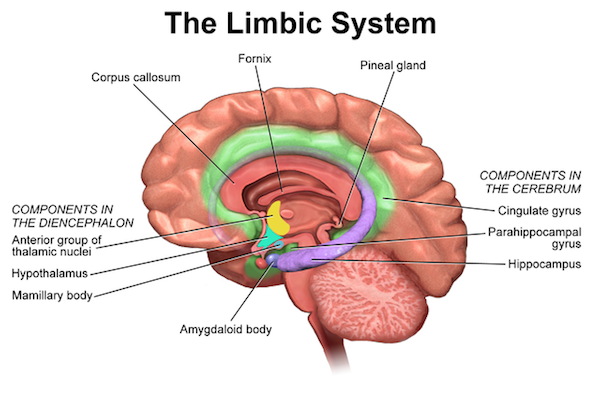There once was a man named Elliot. An intelligent, pleasant thirty-something guy, he had built a pretty good life for himself, with a family and a good job. But his life started to fall apart when he got a brain tumor the size of a small orange that compressed his frontal lobes — causing debilitating headaches and an inability to focus.
Even after a successful surgery to remove the tumor, Elliot’s life continued go downhill. His relationships unravelled, he couldn’t hold a job, and invested in a disreputable business scheme that lost him his savings. Something was still wrong with Elliot’s brain — damage to parts of his frontal lobe somehow resulted in an inability to feel emotion.
You’d think that this might have been beneficial at least for his work ventures, some ability to make calculating, rational, optimal decisions. But the opposite was true. After losing his emotions, he’d become hopelessly ineffective at business.
That can be a jolting lesson for many of us who consider emotion something to regard very lightly in the workplace. Emotions work, not as a barrier to getting things done, but to help us reason at a basic level and thrive.
How Emotions Work in Dumb Decisions
Elliot is one of the patients that the famous neurologist Antonio Damasio wrote about in his 1994 book, Descartes’ Error: Emotion, Reason and the Human Brain.
Initially, Damasio was stumped. Here was Elliot, this intelligent, coherent, knowledgeable person whose memory remained intact, even after the surgery — and he was failing at life in all respects.
He couldn’t do anything on a schedule or manage his time. He was unable to prioritize tasks, spending too long on one thing or drifting onto another. After talking for hours with him, Damasio finally realized that it wasn’t an intellectual failing but an emotional one. Elliot was always neutral and dispassionate, and not because he was holding back. He wasn’t “hushing inner turmoil. He simply did not have any turmoil to hush,” as Damasio describes.
It was the loss of emotions that caused a smart man to keep making dumb decisions. He never learned from his mistakes.
Scientists once thought that there was a distinct emotional center in the brain. We now know that emotions work more comprehensively, wired into many cognitive functions and processes — including our ability to form memories, learn, and pay attention. Specifically, Damasio found out that reasoning is incomplete without emotional motivation.
Elliot’s lack of emotional drive made him unable to see more value in one thing over another. As Damasio explains, the defect happens in the “late stages of reasoning, close to or at the point at which choice making or response selection must occur.”
When you’re thinking something through, you’re also using your gut to work through the pros and cons. Without emotions, you wouldn’t be able to make good decisions.
In our iDoneThis article, we have talked about Survivorship Bias that’ll eventually make better decision in any stage of your life.
Emotions Work At Your Job, Too
By themselves, emotions are neither strengths nor weaknesses, but how you deal with them can be.
That’s because feelings are feedback, as psychologists Roy Baumeister and Kathleen Vohs, explain. Emotions are instructive, as a “feedback system for facilitating behavioral learning and control.”
Let’s say you forgot your significant other’s birthday because you were extremely swamped at work. You’d feel guilty, which makes you think about what you did wrong. You might start keeping track of birthdays in your calendar or next time you have a busy week, make sure you’re checking in with loved ones. Emotions help you learn and gain insight that in turn, influence your future behavior.
“You cannot control your emotions,” they write, “because the purpose of emotions is to control you.” Feedback helps you decide what to do next, and that’s why Elliot kept running into trouble. He had no feedback to process and was never able to learn from his mistakes.
Baumeister and Vohs also explain: “emotion as feedback could be very useful for almost any sort of goal pursuit because it can guide behavior toward the goal.” That’s why it’s important to pay attention to emotions at work. When Harvard Business School professor Teresa Amabile and psychologist Steven Kramer found in their research that making meaningful progress is the most powerful motivator, they realized the vital role emotions play in impacting motivation.
Progress creates inspiring, engaging positive emotions such as satisfaction, joy, accomplishment, and self-worth. You feel good because you feel like you did something to make a difference, however small, and that’s incredibly motivating. Meanwhile, setbacks give rise to really negative feelings like frustration, stress, shame, sadness, and anger that can have powerfully contrary effect on your productivity and drive.
“Depending on what happens with our emotions,” Amabile and Kramer write, “motivation for the work can skyrocket or nosedive (or hardly shift at all).”
* * * * *
As part of who you are and how you think, emotions work when you do. They don’t go away. Elliot’s story teaches us how your brain needs emotions to make decisions, stay motivated, and work towards goals.
We’re often asked multiple times a day “How are you?” and “How’s everything going?” as greetings more than expressions of interest. But think about these questions coming from the people who matter to you. How are you? How are you feeling? How was your day? They really want to know and they take the time to listen: it’s an expression of care.
Extend this inquiry and care to yourself, to acknowledge your emotions. You choose how to react to this feedback, to learn from it, and grow. “Real life has a way of forcing you into choices. If you do not succumb to that forcing, you can be just as undecided as Elliot,” says Damasio. Emotions and feelings don’t get to make our decisions for us, but they’re what help us get through and thrive in real life.
Images: Leo Reynolds (smiley), Blausen.com staff (limbic system)


